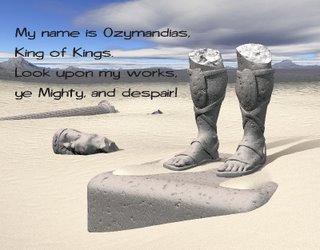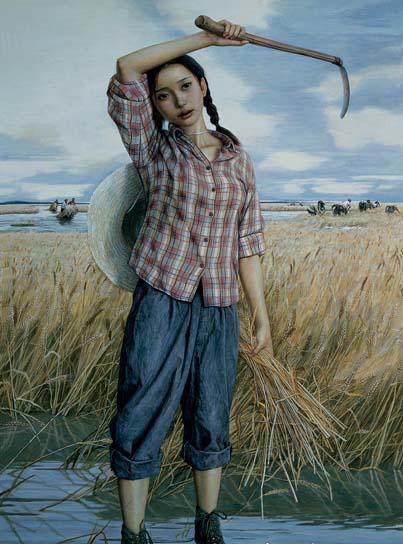Brief: This Seven Ages of Man summary is a poetic endeavor to understand the deep philosophical truth that deeply informs the central idea of this poem – the rather stoic stance that right from our entry to exit on this stage of life, a man’s mortal bearings have been pre-determined by the universal creator by means of seven neat division or ‘Acts’ that define our worldly duration. This explanation seeks to ask some critical questions about free will or the lack of thereof, and the guiding force of destiny that reduces us all to mere actors who are but following a script in our pursuit to add meaning to life.
Since the Elizabethan age, William Shakespeare has been an undying brand in himself in the realm of English literature, with his 38 plays, 154 sonnets, and long narrative poems and other verses comprising the chief mainstays of literature as we know, read, and enjoy it today. Commonly revered in academia as the ‘Bard of Avon’ and recognized universally as the national poet of England, Shakespeare’s prolific pieces have outgrown its time to have assumed immense literary and philosophical significance in today’s time.
Below, we provide The Seven Ages of Man summary – a poem that is an excerpt from the Act 2, Scene 7 of Shakespeare’s ‘As you Like it.’ This piece, which is originally a monologue by Jaques, outlines the maturation and life of a typical male individual by dividing his earthly existence into seven stages – all within the ambit of the overarching comparison that equates life with a grand play crafted by the universal creator, with the men being mere actors in this pre-destined scheme, complete with their unique qualities and roles assigned for each stage of life. This comparison is the guiding framework of the poem, with each stage carrying valuable insights into the life of an ordinary man and the qualities he shows and roles he undertakes in each part.
The Seven Ages of Man Summary; Line-by-Line Explanation
All the world’s a stage,
And all the men and women merely players;
They have their exits and their entrances;
And one man in his time plays many parts,
His acts being seven ages.
This first sentence presents the guiding framework of the poem, the central idea that the world is but a stage where all the men and women enter when they are born and exit at death. However, this play is not a bland monotonous one, but one with seven distinct parts that are compartmentalized according to age and the maturity that comes with it. And within each age-defined part, a man shows certain stock qualities and features and undertakes certain worldly responsibilities, which go on to add flesh to the skeleton of their life, which has already been pre-decided by Destiny. Next, this poem goes in detail about each act or stage of life.
At first the infant,
Mewling and puking in the nurse’s arms;
And then the whining school-boy, with his satchel
And shining morning face, creeping like snail
Unwillingly to school.
The second line of the poem elucidates on the first stage where a man is a crying puking infant assigned to the care of a nurse, unable to look after himself. From this infancy stage, the man then grows into a whining schoolboy, reluctantly holding on to his satchel and unwilling to go to school, which defines the learning phase of a man’s life. During the second stage, the man has the brightness of the morning sun (reference to childhood) but the pace of a snail that is creeping. This slow tiresome pace comes from the lack of willingness to fulfil the responsibility of a student and learner, which is common to most young boys.
And then the lover,
Sighing like furnace, with a woeful ballad
Made to his mistress’ eyebrow.
The third line draws an allusion to the teenage stage of a man’s life where he dutifully plays the role of an impassioned lover, who sighs in love as if he were a furnace. Young love is commonly associated with love letters written by a man to impress his object of love. These love letters are full of passion but often lack weightage, something that Shakespeare has hinted at by mentioning that such ‘ballads’ (which is an exaggeration to ironically indicate the futility of such young love) are written to the mistress’ eyebrows (choosing eyebrows as the topic of poetry indicates that there is no depth to this love).
Then a soldier,
Full of strange oaths, and bearded like the pard,
Jealous in honour, sudden and quick in quarrel,
Seeking the bubble reputation
Even in the cannon’s mouth.
This fourth line sheds light upon the spirited and aggressive stage of life (jealous in honor) when the young lover evolves into a short-tempered soldier (sudden and quick in quarrel), who dedicates this particular ‘act’ of his life to chasing the bubble, i.e., short-lived reputation of a soldier who lives by the cannon’s mouth, the cannon being an allusion to the battle-informed life of a typical soldier. In this stage, the man is buoyed up through strange oaths of loyalty and honor that a country employs to bind its soldiers. The man’s facial features also mature during this stage, and he goes on to grow a beard that has been compared to the ‘pard,’ i.e., a leopard’s whiskers, indicating the fire that the youth carry, especially when they are fighting for their country as soldiers.
And then the justice,
In fair round belly with good capon lin’d,
With eyes severe and beard of formal cut,
Full of wise saws and modern instances;
And so he plays his part.
The fifth line is where the young impassioned soldier grows into a middle-aged adult who has settled in the professional role of high-ranking judge, which could probably be the reward for having paid his dues as an adept committed soldier. From having a short-tempered demeanour, this once-young man has settled into mid life with a fair round belly, which is an allusion to wealth and prosperity. However, there is indication that this wealth and prosperity have not come through honour and the fire that the man emulated as a solider, but it is the product of ‘capon,’ which means bribe. His eyes are no more burning with motivation and drive but have become severe, having learnt the ways of the world; and his beard that once carried leopard whiskers has now been fashioned into a formal professional cut to suit his age and professional role. From being a reluctant schoolboy to a hopeless lover and a spirited soldier, now the man lives a life of ‘wise saws,’ which translates to old sayings, that he neatly applies to the modern life as deemed fit by him. The man’s maturation into a worldly being reaches a climactic point in this fifth stage.
The sixth age shifts
Into the lean and slipper’d pantaloon,
With spectacles on nose and pouch on side;
His youthful hose, well sav’d, a world too wide
For his shrunk shank; and his big manly voice,
Turning again toward childish treble, pipes
And whistles in his sound.
In the sixth line of the poem, the man enters the elderly act of life, as an old man requiring spectacles to aid his vision made weak with age, with the schoolboy satchel now replaced with a small pouch that is enough to carry all his humble old daily necessities. In this stage, Shakespeare calls the man a slipper-wearing pantaloon, which means a fool, which strikes a contrast with his old role as a judge where he only dealt with wise sayings. The man’s fat belly has been transformed with age into a shrunk frame, his big manly voice that could once be associated with the cannon’s mouth has now reduced to childish treble, with his voice interjected with whistles and pipes, indicating shortness of breath. It is through this fifth stage, signifying old age, that Shakespeare has shown how age dissipates the fire of youth and the grandeur amassed through adult life.
Last scene of all,
That ends this strange eventful history,
Is second childishness and mere oblivion;
Sans teeth, sans eyes, sans taste, sans everything.
The final line signifies the final stage of a man’s life, i.e., when he is on his deathbed at the fag end of his eventful personal history. Shakespeare has likened this seventh stage to the first stage, calling it a ‘second childishness,’ for during this last stage of a life, a man becomes senile, encapsulated within oblivion, signifying memory loss. During this time, the man indeed becomes as incapacitated as an infant, having lost his teeth, vision, eyes, and just about everything, as he once was in his nurse’s arm.
Now that the Seven Ages of Man explanation has been provided to you, let us discuss the deeper significance of the poem and the larger message it holds for modern-day readers. Take a look at the seven ages of man analysis in details
The Seven Ages of Man Analysis
At the very outset, this poem appears to be a running commentary on the various qualities, features, and roles that characterize each stage of a man’s life. However, a deeper analysis into this poem reveals that through these stoic words, Shakespeare is urging his readers to ask certain uncomfortable questions, investigating into existential concepts such as free will and our meaning and purpose in life, which is the overarching theme of the poem. He has represented a man’s life as a theater script, wherein all ups and downs that we take so seriously are shown as pre-determined elements of a cosmic script. This highlights the sub-theme of destiny and fate, accentuating how we all just enter the earthly domain with our mortal responsibilities cut out for us from the moment we are born and all the way to our death. Stoicism and worldliness are other aspects that define the poem. It is through the poet’s stoic stance that we understand that at the start we have the choice to be reluctant when we are forced to play the traditional role of a school-going pupil; however, as we grow older, the world manipulates us by strange promises and oaths, to the point that we become wise in the worldly sense of the term, completely consumed in the ways of the materialistic objective-driven world. And in the end, we go back to our dependent stage as an infant with no sense and agency, awaiting oblivion. This outlining of our lives in seven sentences also makes one question the purpose of life, while highlighting the futility of our scripted efforts because no matter what we do and how well we do it, in the end we are all meant to go back to the start in our cyclical existence of life and death.
Conclusion
Through this Seven Ages of Man analysis, we hope we have been able to show to you the wonders that seven sentences can hold, offering to readers across time and ages the stoic cynicism through which Shakespeare viewed life. While this poem is an over-generalization for the most part, shaking some of our existential cores by talking about life in a simple straight-forward fashion, the questions raised by this poem are definitely worth an intellectual discussion. Art is but a reflection of life, and we would love to know what your thoughts are on the different stages of your life. To study English literature is to study life, so let us know how much you agree or disagree with the stance forwarded in the poem in the comments section below. Additionally, keep checking our website for more nuanced and technical explanations revolving around the intricacies of poetry. We will soon be posting a more in-depth study of this poem. Hope this detailed write-up on the seven ages of man summary and analysis was helpful to you! Feel free to head over to Beamingnotes Youtube channel for an audio-visual version of the same!
Here is a detailed video of The Seven Ages of Man summary, analysis and critical appreciation.
Suggested Reading: Summary of The Seven Ages of Man in Hindi
Some online learning platforms provide certifications, while others are designed to simply grow your skills in your personal and professional life. Including Masterclass and Coursera, here are our recommendations for the best online learning platforms you can sign up for today.
The 7 Best Online Learning Platforms of 2022
- Best Overall: Coursera
- Best for Niche Topics: Udemy
- Best for Creative Fields: Skillshare
- Best for Celebrity Lessons: MasterClass
- Best for STEM: EdX
- Best for Career Building: Udacity
- Best for Data Learning: Pluralsight













i want to know description of line-“seeking the bubble reputation”
A bubble rises very fast and pops just as quickly.
During this stage of life, men set their sights on very high places (we might compare the modern concept of ‘fame’), and want to rapidly achieve success. The danger with this is that a slight mistake can tarnish your reputation forever.
Why do you think no-one bothers about the sins of unimportant people, while everybody remembers the flaws of public figures?
“bubble reputation” means short and temporary words of praise. Shakespeare is trying to say that a soldier, full of strange ambitions is willing to do anything on the battlefield. Every soldier will try his best to attain that mini respect. There is a competition between all the soldiers to get it.
It takes man a lot of time to develop a lot of reputation.The bubble grows but just a single touch also makes it disappear.Man has took a lot of time to build his reputation and he can even stand in the front of cannon;s mouth but he will never let down his reputation!
bubble stands something that would not last
aiming to win fame and glory, even if they are short lived
Bubble reputation actually means
The stage of a soldier is striving hard for seeking the bubble reputation,which is momentary like the bubble.they go till the maximum extent for the momentary hapiness and are ready to face any adventure for seeking their reputation
i have to make a poster on the first age ant need a description of that one plzzzzz……. help me
Banao aur kya
This was really very helpful nd it helped me a lot for my exams
The first stage is of the infant as you know….in this stage the infant is dependent upon others to look after it…it pukes and cries in the nurse’s arms and does whatever he wants to do…
we hd to a drama. this helped us….this is awesome
The first stage of man is childhood and in this poem the childhood of the baby of a rich family is taken into consideration.AS the infant of a rich family is taken care by the nurse and so thus is usually found crying and vomiting in the nurses arms.
At the first age the poet describes that the actorentered into the stage as it have it’s birth to play seven ages. The first he beins and start crying and vomiting in the nurse’s arm .
its really helpful i read the summaries of all the lessons n helps getting marks
i want to know the meaning of sighing like furnace,within woeful ballad
sighing like furnace means breathing hard with intence passion and the woeful of ballad it means a romantic poem composed i praise of his lover’s beauty
What illustration would best suit the 5th stage? I need reference, please?
in the 5th state the person become mature and no more games. and he become wise and judge fairly just like our parents
no he actually becomes a judge and has a round belly because of all the money he got from bribes, its TRUE!
i really like the poem and the explanation was really helpfull
for me it was reall help full to uderstand this poem, it is really A NICE poem
good and helpful website.helps to prepare in examinations…..awesome
meaning of the fifth and fourth stanza
I wanna describe the age of schoolboy in detail …any description needed
kush ni bekar aa jama bi
thes 1 rally haolped mi wif mi erish and it helpd mi alot 😀
Can I know the meanin God ‘sighing like furnace’?
instead of 2nd stage there is fourth stage
THERE IS A SMALL CORRECTION IN THE SUMMARY IT IS WRITTEN THAT THE INFANT WHEN GROWS INTO A SCHOOLBOY IT IS THE FOURTH STAGE IT IS ACTUALLY THE SECOND STAGE
I want the explanation of line his youthful hose, well saved,a word too wide. please help me anyone who know this line meaning.
I am very thankful to the people who wrote the summary of the poem which is very exact. I liked the format of the site
this is owsum
this is a poem in which all life of a person is described in a short form
In the sixth line. Fourth should be changed to second becuz second stage is mentioned there
Nice one
It is really helpfull. I am thankful to all those who has contributed in making if this summary
Superb description it helped me a lot thanks
Why in the third line, exit comes before the entrance?
“They have their exits and their entrances.”
Any hidden meaning?
It means that people are born and dead which is the entrance and exit of life
Birth and death are the exits and entrances
thankz formthe good summary i like it 🙂 thank you
thankz for the good summary i like it 🙂 thank you
why did the persona use the word reputation that compared to bubble ?whwt is the relation?
i mean what is the relation?
In a hurry, you may lose your reputation by doing any wrongful act. As the bubble bursts after it grows to its maximum, the same way a person may harm his reputation.
help me pls! at the second line (and all men and women are merely players) what is the meaning of it?
Helps a lot in understanding the inner meaning of the poem
All men and women are merely players= Every person enters into the “stage” of life through birth. Therefore, people are compared to actors and actresses since the world is compared to a theatre stage. Every person performs their individual parts = live their own lives, they enter =are born and they exit= they die.
I have to create a presentation on this help me…
why does the men and women referred to as players? – i need a good explanation for that. Thank You
why does the men and women referred to as players? – need a good explanation for that. Thank You
easy to understand
Thank you
Nice,useful,wonderful,no words to describe it
I am very lucky that i found this website when i was searching for the summary of this poem, it helped me a lot
Thanks
Tks a lot .This helped me for my project
Why is the school boy described as ‘whining’ ?
Where the rest of it
Where’s the rest of our lives
this is a very helpful and a very nice summary and analysis but i be very grateful and thankful if u could analyze it in different perspectives…such as from political, religious, or psychoanalytical perspectives..thank you
Please Help me what is the Example of Metaphor. i need now plssss
Images used in the poem and image in the line ‘all the life is a stage’